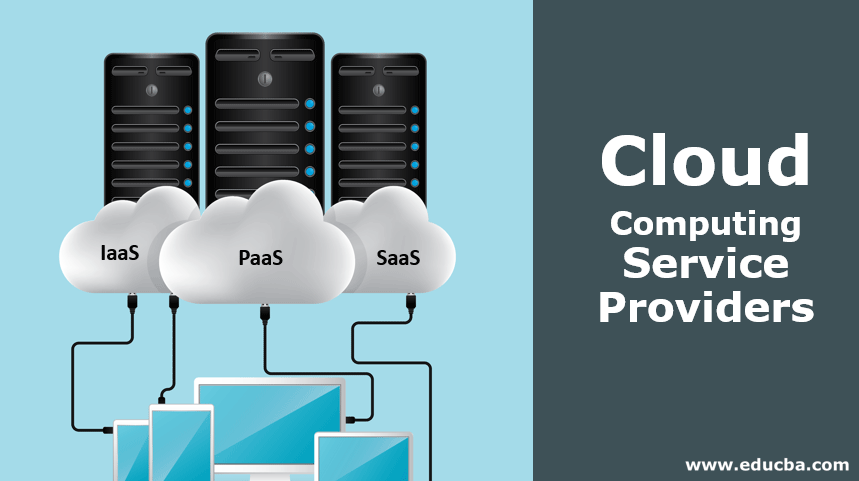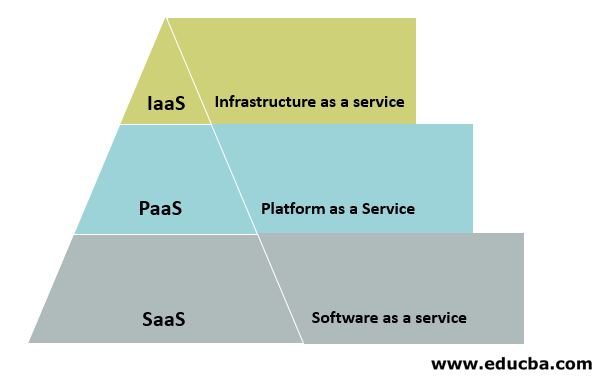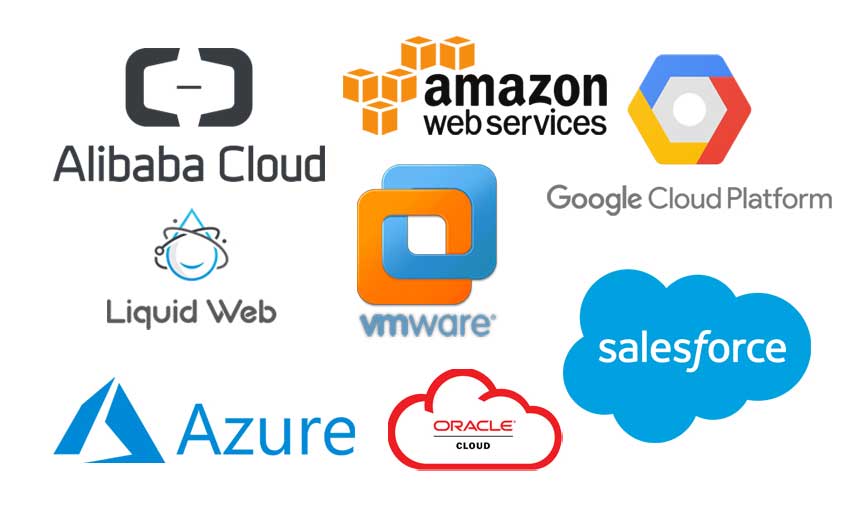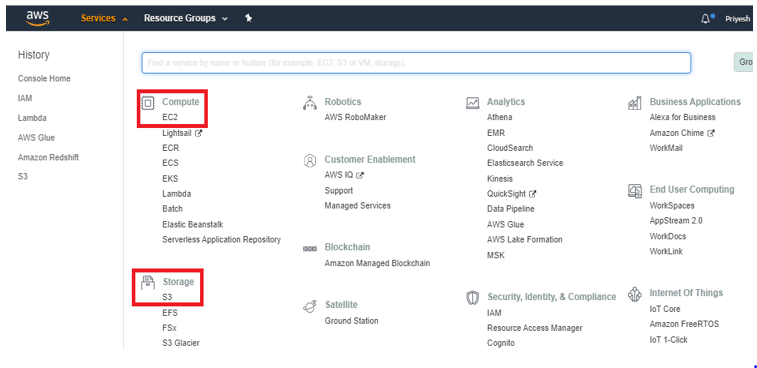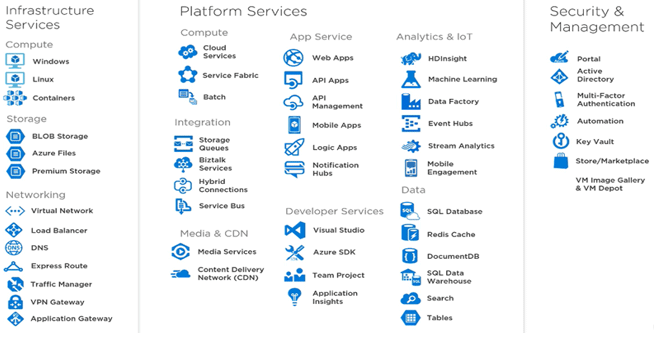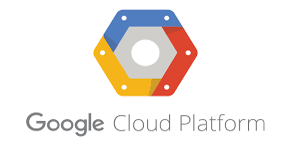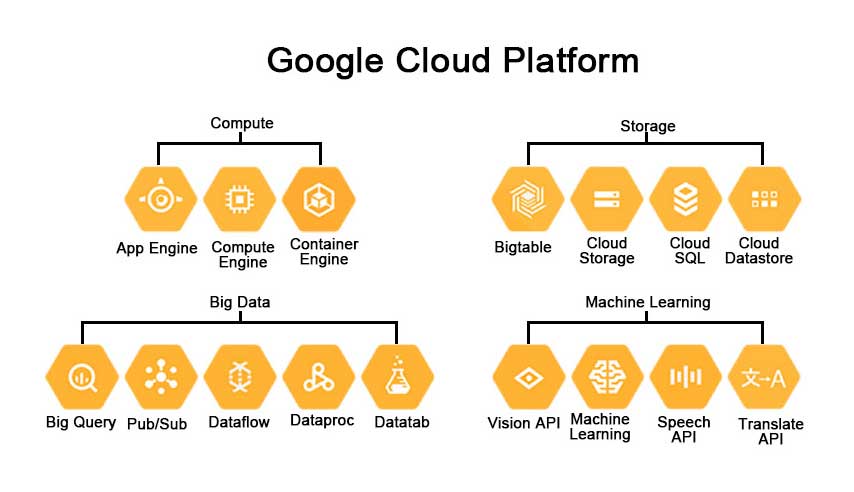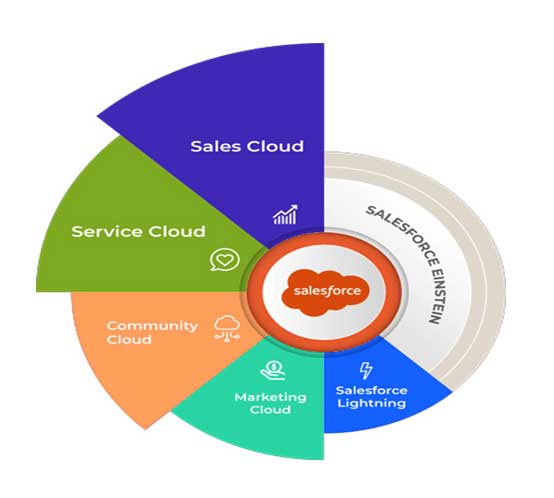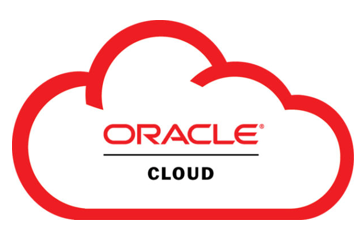Introduction to Cloud Computing Service Providers
Cloud Computing is one of the most sought-after and marketable services in recent years, but what does it mean? Do you want to sit on the top of the mountains with a laptop or take a helicopter above clouds to make it work? Does it work when we have a clear sky? In this topic, we will learn about Cloud Computing Service Providers.
What is Cloud Computing?
Before we discuss the cloud service providers, let us have a brief introduction to cloud computing. Cloud computing is pretty big, and it is growing bigger every day.
There are three layers of cloud computing, as shown in the picture below.
Cloud computing service providers use the layers differently based on what they want to offer their users.
1. IaaS (Infrastructure as a Service)
The foundation of cloud computing is the infrastructure or IaaS; it provides basic computing infrastructure: servers, storage, and networking resources, and IT Administrators majorly use it. It can be used for various purposes, from hosting websites to analyzing big data. Major IaaS providers include Amazon Web Services, Microsoft Azure, and Google Compute Engine, which we will discuss in detail.
2. PaaS (Platform as a Service)
PaaS refers to cloud platforms that provide runtime environments for developing, testing, and managing applications. Software developers mostly use it.
3. SaaS (Software as a Service)
SaaS allows people to use cloud-based web applications like Gmail, Google Drive, Office 365, etc.
Why Cloud Computing?
To understand Cloud Computing, let’s take a simple example. Assume in your home you use CNG gas for cooking. We usually don’t need a chemical factory or biogas plant at home; we need a gas service provider to provide us with the gas supply or cylinder. If we think of building a biogas plant or chemical factory, then that would be very expensive for us, and it’s not worth it to do it just for cooking daily food, right? And also, we pay for the amount of gas that we use. Similarly, cloud computing provides servers, databases, computing power, etc., so we don’t worry about setting these things at our cost. We also have the option to pay only for the resources we use. Hence, cloud computing is cost-effective.
List of Popular Cloud Service Providers
Lets us see some of the Cloud Service Providers
- Amazon Web Services
- Microsoft Azure
- Google Cloud Platform
- VMware
- Salesforce
- IBM Cloud
- Oracle Cloud
- Rackspace
- MassiveGrid
- Alibaba Cloud
- LiquidWeb
- DigtialOcean
- Kamatera
- Verizon Cloud
- Navisite
- IBM Cloud
- OpenNebula
1. Amazon Web Services
When you hear the term ‘Cloud Computing,’ what comes to mind? Amazon Web Services (AWS), right?
AWS is a subsidiary of Amazon that provides on-demand cloud computing services to its users. It all started in 2006 when Amazon decided to introduce its IT infrastructure, which hosts amazon.com, to the world. Since then, they are continuously improving and introducing new services on their AWS website. The services help individuals and organizations run their websites and applications without worrying about the servers and Data stores; these services also help store data and analyze it using different Amazon services, all with the ‘Pay as you go’ concept.
The Availability and Durability of many AWS services is around 99.99% which is one of the reasons companies like Spotify, Netflix, Adobe, and Airbnb host their data on AWS. AWS Cloud spans 69 Availability Zones within 22 geographic Regions around the world. Some popular AWS is S3(used by Spotify for storing data), EC2 a compute, CloudWatch monitoring service, and many more. AWS provides detailed documentation for each service and has AWS training and certification programs, making learning and understanding AWS simple. In the decade where “The Data is called as new Oil”, the concept of cloud computing plays a vital role, and AWS leads in it.
2. Microsoft Azure
Azure is a subsidiary of Microsoft that provides on-demand cloud computing services to its users. It was launched in the year 2010 with the pay-use model. 80% of the top 500 Fortune companies use Azure services that support multiple programming languages like C, Java, Node.Js, etc. As of April 2018, Microsoft Azure is available in 140 countries, with over 40 data centers. There are more than 200 Azure services which are divided into 18 categories.
Batch, Cloud service, Virtual Machine, and Service Fabric all come under the compute section of Azure. With the help of these services, you can launch servers, load balance them, scale in or scale out them, use serverless functions, etc.
Azure Networking Domain contains the following services: Azure VPN gateway, Traffic Manager, Azure CDN, Express Route, Virtual Network, and Azure DNS. Azure networking and CDN services deliver content to users worldwide with high bandwidth. The express route allows integrating on-premise networks with Microsoft Cloud through a private connection. Azure DNS is a website hosting service that lets users host their DNS domains in Azure.
Azure Storage Domain contains the following services: Azure Files, Disk Storage, Blob Storage, and Queue Storage. Disk storage provides cost-effective SDD/HDD options, which can be incorporated with Azure Virtual machines. Blob storage is an optimized storage system for storing massive amounts of unstructured data, such as text or binary. Finally, queue storage renders durable message queuing for huge workloads and can be accessed from anywhere around the globe.
3. Google Cloud Platform (GCP)
Google Cloud Platform is the cloud computing service offered by Google; its cloud computing services run the same infrastructure that Google uses internally for its end-user products, such as Google Search and YouTube. However, these services are divided into different domains: Compute, Storage, and Networking.
In the Compute domain, we have four services: compute engine, App Engine, Kubernetes Engine, and Cloud functions. In the compute engine, we set up servers and configure their operating system. For example, we can set up Linux or Windows OS instances and allocate RAM and ROM according to our requirements.
GCP Storage Domain has the following types of storage: Datastore, Storage, Bigtable, SQL, and Spanner. Datastore and Bigtable are both NoSQL storage. Storage is a file system-based storage. SQL and Spanner are structured/block storage services.
GCP Networking domain has three important services: VPC Network, Network Services, and Interconnect. These are used for networking purposes and to establish a connection between different networks.
4. Salesforce
Salesforce is an American cloud computing platform founded in 1999 that provides services like SaaS and PaaS. Salesforce is popular in SaaS, which includes services products like CRM, IOT, Health, Sales, Marketing, Commerce, community, App Cloud, Analytics, etc., which is being used by some top companies worldwide, such as Google, amazon, etc.
The sales cloud service helps us to control sales processes, where users can share sales-related information like customer details. One can also use a marketing cloud service to promote products, conduct a digital marketing campaign, etc. Analytic cloud service helps us to get business insights. We can also integrate sales and marketing clouds for business analysis. Community cloud service helps users get in touch and share issues or discuss a topic. With the help of App Cloud, we can develop various apps.
Salesforce is Cheaper, Scalable, Collaborative, and hassle-free, and it works with two types of architecture.
- Multi-Tenant Architecture
Multiple clients will share one server in this architecture; hence it is economical.
- Meta-data Architecture
Here functionalities of an app are defined as metadata in a database. Allow the developer to concentrate only on building the application.
5. Oracle Cloud
Oracle Cloud is a cloud computing service that comes under the umbrella of Oracle Corporation. It provides storage, servers, network, applications, and services through a global network of data centers managed by Oracle Corporation. In addition, the company has made these services available for provisioning on-demand over the Internet.
Oracle Cloud lets you use the same technologies and standards in the cloud as on-premise; therefore, both environments can seamlessly be integrated and managed as a hybrid cloud platform that helps reduce costs and become more agile.
Oracle Cloud provides IaaS, PaaS, SaaS, and Data Services (DaaS). Companies use these services to build infrastructure, develop and deploy software, integrate on-premise and cloud environments, and implement applications in the cloud.
Conclusion
The number of cloud computing service providers is increasing every day. The quality of the services they provide is also improving dynamically; therefore, the choice of the cloud service provider depends upon the project requirement, the type of the project, the cost involved, etc. For example, if you use Oracle hardware and Oracle databases in your on-premise system, migrating to the Oracle cloud would be more feasible and cost-effective than migrating it to any other cloud service provider.
Emerging competition between cloud service providers has benefited a lot of users and companies; now, companies can focus more on development and their customers rather than infrastructure and provisioning of servers and hardware.
Recommended Articles
We hope that this EDUCBA information on “Cloud Computing Service Providers” was beneficial to you. You can view EDUCBA’s recommended articles for more information.

